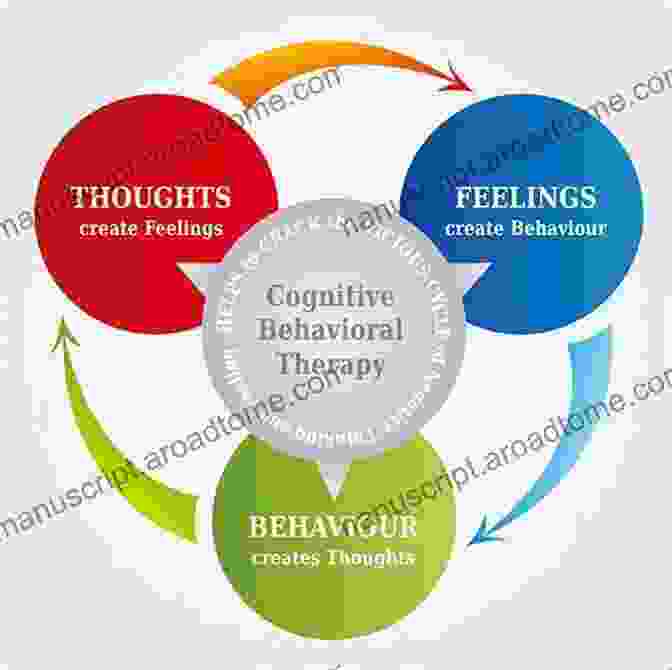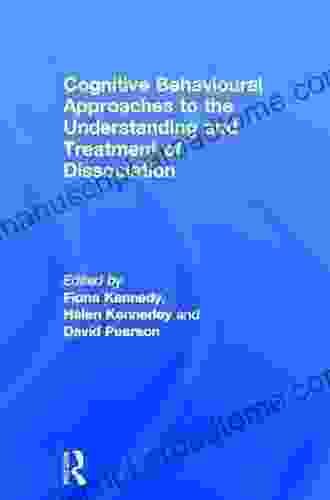Unlocking the Power of Cognitive Behavioural Approaches: A Path to Understanding and Treating Mental Health


Mental health conditions affect millions of individuals worldwide, impacting their daily lives, relationships, and overall well-being. Understanding the causes and effective treatments for these conditions is crucial for promoting recovery and restoring quality of life. Cognitive behavioural approaches (CBAs) have emerged as a powerful tool for therapists and individuals seeking to overcome mental health challenges. This article provides a comprehensive overview of CBAs, exploring their theoretical foundations, evidence-based techniques, and applications in treating various mental health conditions.
Cognitive Behavioural Approaches: A Theoretical Framework
CBAs are rooted in the belief that our thoughts, emotions, and behaviours are interconnected and influence each other. According to this perspective, maladaptive thoughts and behaviours contribute to the development and maintenance of mental health issues. CBAs aim to identify and challenge these unhelpful patterns, leading to positive changes in emotions and behaviours.
4.5 out of 5
| Language | : | English |
| File size | : | 6086 KB |
| Text-to-Speech | : | Enabled |
| Screen Reader | : | Supported |
| Enhanced typesetting | : | Enabled |
| Word Wise | : | Enabled |
| Print length | : | 505 pages |
Cognitive therapists focus on examining the client's thoughts, beliefs, and assumptions. They explore how these cognitions impact the individual's emotional responses and subsequent actions. By identifying cognitive distortions and irrational beliefs, therapists can help clients develop more adaptive and realistic thought patterns.
Behavioural therapists, on the other hand, focus on changing observable behaviours. They employ techniques such as exposure and response prevention, reinforcement, and functional analysis to modify maladaptive behaviours and promote healthier ones.
Evidence-Based Techniques in Cognitive Behavioural Approaches
CBAs encompass a range of evidence-based techniques that have been shown to effectively treat various mental health conditions. These techniques include:
- Cognitive Restructuring: This technique involves identifying and challenging distorted thoughts and beliefs, replacing them with more positive and realistic ones.
- Behavioural Activation: This approach encourages clients to engage in activities that bring them pleasure and accomplishment, thereby increasing positive emotions and reducing avoidance behaviours.
- Exposure and Response Prevention: This technique gradually exposes clients to feared situations while preventing them from engaging in avoidance behaviours, helping them overcome phobias and anxiety disFree Downloads.
- Mindfulness-Based Cognitive Therapy (MBCT): This approach combines meditation and cognitive techniques to enhance self-awareness, reduce stress, and regulate emotions.
- Dialectical Behaviour Therapy (DBT): This therapy is specifically designed for individuals with bFree Downloadline personality disFree Download and focuses on teaching skills for regulating emotions, managing interpersonal relationships, and tolerating distress.
Applications of Cognitive Behavioural Approaches
CBAs have been extensively used to treat a wide range of mental health conditions, including:
- Depression: CBAs help individuals with depression identify and challenge negative thoughts, develop coping mechanisms, and engage in behavioural activation.
- Anxiety DisFree Downloads: CBAs provide techniques for managing anxiety, such as exposure therapy, cognitive restructuring, and relaxation training.
- Addiction: CBAs help individuals understand the cognitive and behavioural factors that contribute to addiction, develop relapse prevention strategies, and enhance self-control.
- Trauma: CBAs provide a framework for processing traumatic experiences, addressing maladaptive coping mechanisms, and restoring emotional regulation.
- Eating DisFree Downloads: CBAs focus on changing unhealthy eating patterns, challenging body image distortions, and improving self-esteem.
Benefits of Cognitive Behavioural Approaches
CBAs offer numerous benefits in understanding and treating mental health conditions:
- Evidence-Based: CBAs are supported by extensive research and have demonstrated effectiveness in treating a wide range of mental health issues.
- Practical and Goal-Oriented: CBAs focus on practical techniques that clients can apply in their daily lives to achieve specific goals.
- Empowering: CBAs teach individuals how to identify and manage their own thoughts and behaviours, fostering self-reliance and resilience.
- Time-Limited: CBAs typically involve a defined number of sessions, providing a structured and focused approach to treatment.
- Collaborative: Therapists and clients work together as a team to develop and implement personalized treatment plans.
Cognitive behavioural approaches are indispensable tools for understanding and treating various mental health conditions. Their theoretical foundations, evidence-based techniques, and wide range of applications make them a valuable resource for therapists and individuals seeking recovery. By challenging maladaptive thoughts and behaviours, CBAs empower individuals to overcome mental health challenges, improve their well-being, and live more fulfilling lives.
If you are struggling with mental health issues, do not hesitate to seek professional help. A qualified therapist can guide you through the process of identifying and addressing your specific needs, offering support and evidence-based interventions to facilitate recovery and promote lasting mental health.
4.5 out of 5
| Language | : | English |
| File size | : | 6086 KB |
| Text-to-Speech | : | Enabled |
| Screen Reader | : | Supported |
| Enhanced typesetting | : | Enabled |
| Word Wise | : | Enabled |
| Print length | : | 505 pages |
Do you want to contribute by writing guest posts on this blog?
Please contact us and send us a resume of previous articles that you have written.
 Book
Book Novel
Novel Page
Page Chapter
Chapter Text
Text Story
Story Genre
Genre Reader
Reader Library
Library Paperback
Paperback E-book
E-book Magazine
Magazine Newspaper
Newspaper Paragraph
Paragraph Sentence
Sentence Bookmark
Bookmark Shelf
Shelf Glossary
Glossary Bibliography
Bibliography Foreword
Foreword Preface
Preface Synopsis
Synopsis Annotation
Annotation Footnote
Footnote Manuscript
Manuscript Scroll
Scroll Codex
Codex Tome
Tome Bestseller
Bestseller Classics
Classics Library card
Library card Narrative
Narrative Biography
Biography Autobiography
Autobiography Memoir
Memoir Reference
Reference Encyclopedia
Encyclopedia Dave Nichols
Dave Nichols Charlene Burrell
Charlene Burrell Chris Lauer
Chris Lauer Charles Creighton
Charles Creighton Chip Sullivan
Chip Sullivan Charles Stephenson
Charles Stephenson Vince Holden
Vince Holden Chandra Mukerji
Chandra Mukerji Chris Castaldo
Chris Castaldo Jan C Fransoo
Jan C Fransoo Cheryl Willis Hudson
Cheryl Willis Hudson Chris Tyler
Chris Tyler Dr Richard K Bernstein
Dr Richard K Bernstein Pete Mccall
Pete Mccall Chicago Tribune
Chicago Tribune Marc Schaus
Marc Schaus Christopher King
Christopher King David Jacobsen
David Jacobsen Monique Colver
Monique Colver Cheryl Diamond
Cheryl Diamond
Light bulbAdvertise smarter! Our strategic ad space ensures maximum exposure. Reserve your spot today!
 Cormac McCarthyFollow ·8.6k
Cormac McCarthyFollow ·8.6k Johnny TurnerFollow ·15.4k
Johnny TurnerFollow ·15.4k Darren BlairFollow ·14.1k
Darren BlairFollow ·14.1k Aldous HuxleyFollow ·15.1k
Aldous HuxleyFollow ·15.1k Natsume SōsekiFollow ·14.5k
Natsume SōsekiFollow ·14.5k Billy FosterFollow ·13.9k
Billy FosterFollow ·13.9k Eugene ScottFollow ·14.6k
Eugene ScottFollow ·14.6k Ezekiel CoxFollow ·10.8k
Ezekiel CoxFollow ·10.8k

 Esteban Cox
Esteban CoxYour Yearly Monthly Weekly Daily Guide To The Year Cycle:...
As we navigate the ever-changing currents...

 George Orwell
George OrwellIdentifying and Understanding Astronomical and...
Prepare to embark on an extraordinary...

 Arthur Conan Doyle
Arthur Conan DoyleYour Yearly Monthly Weekly Daily Guide to the Year Cycle:...
Welcome to "Your Yearly Monthly Weekly Daily...

 Steve Carter
Steve CarterUrban Informatics: Unlocking the Secrets of Smart Cities...
An In-Depth Exploration of Urban...

 Henry Hayes
Henry HayesUnveil the Secrets of the Order of the Solar Temple: A...
In the realm of secret...
4.5 out of 5
| Language | : | English |
| File size | : | 6086 KB |
| Text-to-Speech | : | Enabled |
| Screen Reader | : | Supported |
| Enhanced typesetting | : | Enabled |
| Word Wise | : | Enabled |
| Print length | : | 505 pages |














